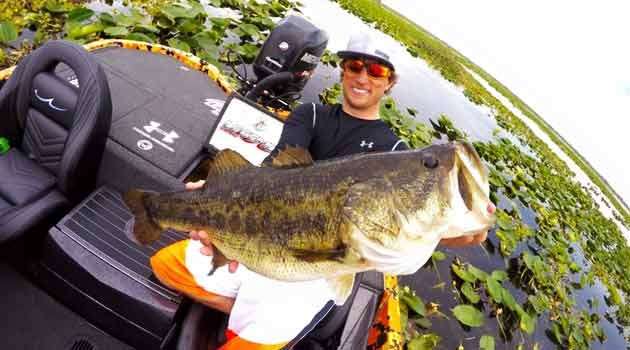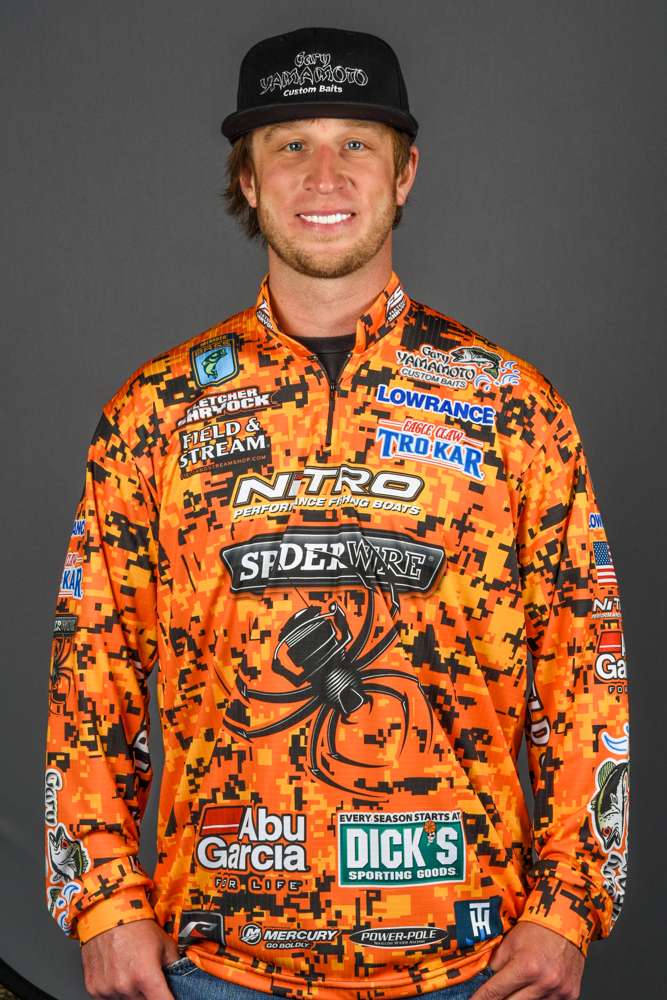
For the people out there who know me fairly well it may come as a shock that I started deer hunting this past year. It was actually something my girlfriend Rosemary wanted to do. When she became addicted to it I decided to buy a bow for myself.
I quickly learned that there are a lot of similarities between bass fishing and hunting deer. I foolishly figured that all I’d have to do to topple a big buck would be to plant some feed for them and then just wait. It almost immediately became obvious that that’s not the case.
One thing that really stuck out to me as I talked with several hunters was the fact that there is a small group of hunters who consistently had success shooting big bucks over the years. There is a much larger group of people that had never shot a large buck or had an opportunity to do so.
It’s no different from tournament fishing. There are anglers who manage to always get “lucky” and get a big bite or two that propel them way up the leaderboard, but there are many more who don’t. Once I made the connection to hunting, I quickly begin to rule out the “luck” factor in both sports.
Big bass are different, just like big bucks. As anglers, we have to remember that these animals have to operate on 100 percent awareness in order to survive in their environment. They have to beware of everything that is going on around them in order to live another day as a result of the many dangers they face. As they get older, not only do they become smarter, but as they grow I believe all of their senses become better as well, making it much harder to trick them into biting an artificial lure.
There are a few simple things that I believe can help an angler’s odds tremendously at putting a few giant fish in the boat. The first thing that comes to mind is being stealthy. All too many anglers make a ton of noise as they approach their prey, giving them a warning of their presence. You have to be quiet when you approach your areas when it comes to running your outboard, trolling motor, and obviously try not to bang anything around in the bottom of your boat.
I also like to turn off my sonar transducers if possible to reduce the noise in the water. You’d be surprised at how “noisy” your sonar is underwater. When making casts and/or flips, try to let your lure hit the water as softly as possible. I don’t necessarily think anglers spook bigger fish away, but I believe they make the fish aware so they won’t bite.
Casting distance and accuracy is the next thing that we all need to work on. Thinking back on my angling experiences, it seems to me that I seem to catch a lot of my bigger fish when making longer casts and/or pitches. This goes back to the stealthy approach. I want to keep as much distance from the fish with my boat as possible and reach them with a long accurate cast or pitch. The strike zones of bigger fish seem to be smaller, and if you don’t put it in that limited window it can be difficult to get them to react. If your casting accuracy is lacking, this is an area where a little bit of effort can make a huge difference.
The time of day is also a huge factor when it comes to catching quality fish. Time after time, my bigger fish often seem to bite around noon on most bodies of water. It’s obviously not always the case, but it holds true for the most part, and that’s a time of day when many anglers start to lose their focus. Even when the action in the day starts to die off after a strong morning bite, I always count on the middle of the day as being my best chance to put a kicker in the boat and try to remain alert and accurate.
Catching bigger fish also requires more attention to detail with your tackle. The bigger they are, the harder they are to get in the boat. Making sure you have the correct size line, hooks and proper rod actions to land a big fish can go a long way. I guarantee you that a big, savvy fish will always find the weak link in your setup.
In certain situations, having your drag set correctly on lighter tackle is also something that you need to be aware of throughout the day. When playing a big fish, you should not put excessive pressure on them unless they are in heavy cover. They often pull harder when you put more pressure on them. If you play them more carefully, it has been my experience that the true giants often seem to tire pretty quickly. Don’t get stressed and don’t push the panic button.
Right now many anglers across the country are experiencing some of the best fishing of the year. For most of us, there are limited opportunities to get on true giants – whether that’s a 6-pounder in Ohio or a 12-pounder in Florida – so you want to make the most of them. By constantly keeping a few of these simple things in mind, you increase your chances of getting her in the boat substantially.
In fact, with the Elite Series now headed to several true hawg factories, I’m going to work hard to remember my own advice in the hope that I’ll be able to get a few of those key big bites and put them in the livewell so that I can catapult up the leaderboard.

